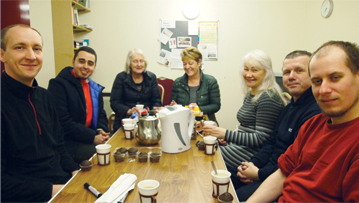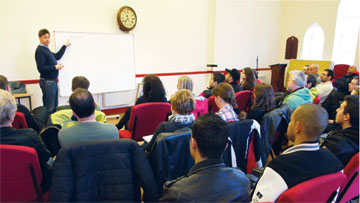“I was a stranger and you welcomed me.” —Matthew 25:35
Due to the expansion of the European Union and the economic recession, Irish RPs have seen many people coming into the country and making it their home. Five percent of North Ireland’s population are foreign nationals; that is, they are living in North Ireland, but they were neither born there nor anywhere else in the UK or Ireland. The media has highlighted the challenges: pressure on the national health system and the school system, growing distrust between people of different cultures, and, sadly, racism.
There has always been migration, but we are not normally on the receiving end of it. We are not used to people coming to us. It need not fill us with fear, but we can see it as an opportunity. Christians are privileged to hold an intimate relationship with the God many people throughout the world are searching to know.
Our Lord Jesus is specifically interested in the foreigner. ...


